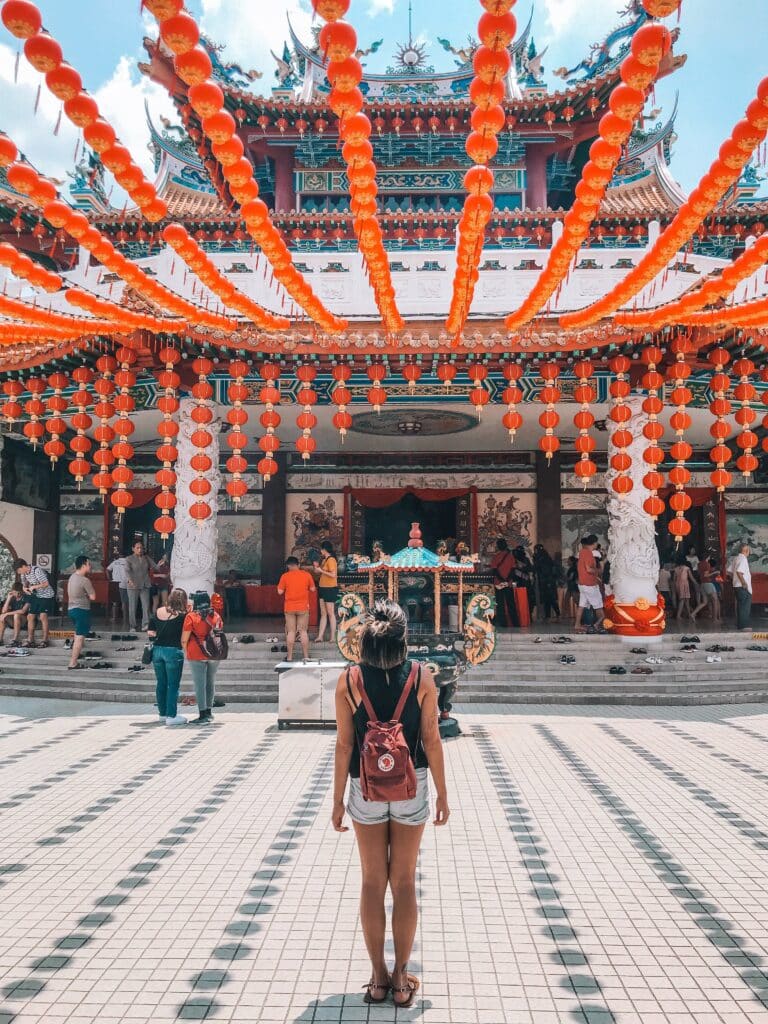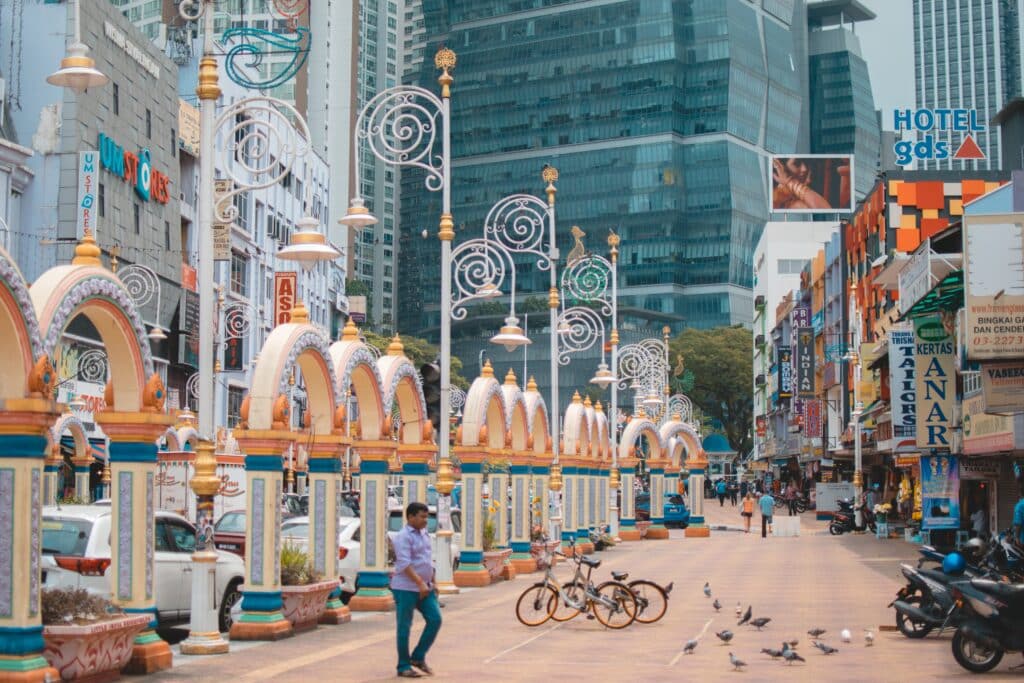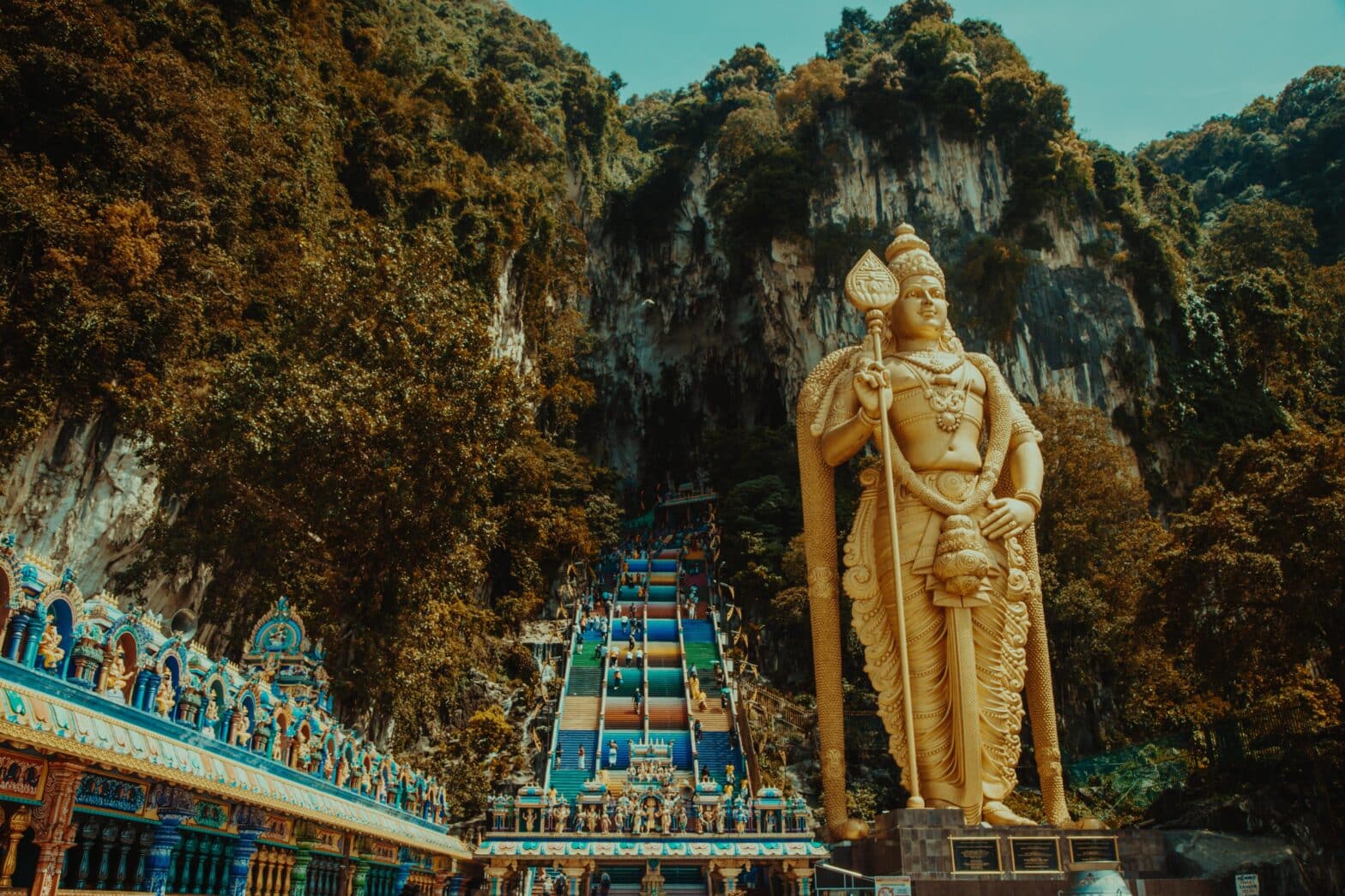A multicultural country with extraordinary natural resources, Malaysia has plenty to offer: pristine beaches, lush jungles, a superb quality of life, and a vibrant economy. The ‘Asian Tiger’ has rapidly become a destination of choice for expatriates from all over the world.
Our comprehensive guide will provide you with all the essential information, including visa, work, health, and housing, for your successful relocation to this tropical heaven.
Why move to Malaysia?
- The Malaysian people’s incredible hospitality makes it easy for foreigners to integrate into the country.
- Although Islam is the religion of the majority, Malaysia remains a multi-cultural model where cultures and religions co-exist peacefully.
- An idyllic setting: beautiful beaches, lush forests, and abundant wildlife.
- An attractive cost of living that gives expatriates moving to Malaysia strong purchasing power (the official currency is the Malaysian ringgit (RM) – €1 = RM5.04 ; $1 USD = RM4.61).
- Political stability
- Economic vitality, supported by strong growth in the SME sector in particular, with English as the working language in large companies.
- Tropical climate is obviously a pro.
- Delicious cuisine blending Malay, Chinese and Indian culinary heritages.

What type of visa/residence permit do you need to move to Malaysia?
As legislation changes on a regular basis, it is advisable to check with the Malaysian embassy or consulate in your place of residence for the requirements to settle in the country. Depending on your profile and the reason for your stay, there are several types of visas and residence permits available: including the MM2H (Malaysia My Second Home), the Nomad Pass (for digital nomads) and the Talent Pass. If you plan to work for a company in Malaysia, your employer will need to apply for an Employment Pass from the Department of Expatriate Services; your residence permit alone will not be sufficient to work in the country.
It is highly recommended to carry your ID and residence permit with you when you go out, as the Malaysian authorities regularly carry out identity checks.
Working in Malaysia
Local companies are not free to hire foreign workers: they must first prove that the job cannot be done by a Malaysian and that the foreigner has the skills required to fulfil the position. Some jobs are strictly reserved for Malaysians, and competition can sometimes be fierce because the local level of education and language is generally quite high.
With the country’s rapid economic growth, there are many job opportunities in international companies, especially for highly qualified candidates, in the energy (oil and gas), health, financial services and technology sectors.
Like many foreign investors, you can also set up your own business in the country and take advantage of Malaysia’s strategic geographical location in Southeast Asia. As a foreigner, make sure that your business is properly licensed and not restricted to Malaysians.
Which city to live in?
The capital, Kuala Lumpur, regularly tops the list of the best cities to live in as an expat. The country’s economic centre offers a high quality of life for urban souls in search of an exotic setting as well as real advantages for expat families in terms of schools and transport. With its half-modern, half-traditional architecture and quality of life, it’s a very dynamic city that’s very popular with expatriates. If you’re a nature lover, go for the island of Borneo, at Kota Kinabalu, nestled between beaches and mountains, it is a fine example of biodiversity. George Town, Penang’s capital, is the perfect retreat for expats looking to combine cultural and culinary immersion with seaside relaxation. Johor Bahru is the ideal city for workers with ties to Singapore wishing to avoid the city-state’s high cost of living. For a tropical lifestyle in the heart of a land covered in lush jungle, surrounded by karst cliff and pristine beaches, head for Langkawi! This former pirate hideout has become a leading eco-tourism destination — change of scenery guaranteed!

Housing in Malaysia
Rent or buy? If you’re planning a long-term relocation to Malaysia, it’s up to you! Malaysia is one of the few countries, along with Singapore and Hong Kong, where it is possible for expats to buy a freehold property. Another option is to rent a house, villa or flat. There is no shortage of accommodation in the country, and you’ll be spoilt for choice! In modern, secure condominiums, you’ll have the luxury of extra facilities such as a gym, swimming pool or tennis court.
Generally speaking, rents are still cheap. While unfurnished accommodation is cheaper than furnished, short-term leases are much more expensive than long-term. Take your time choosing the right city, district and accommodation, as leases are often two-year contracts. If your accommodation is not provided by your company, you will need to show your residence permit, employment contract and work permit to the landlord of your chosen accommodation. Remember to take out household insurance to cover you in the event of natural disasters.
An efficient healthcare system
Malaysia is a top destination for medical tourism in South-East Asia, and its health services are generally efficient and accessible. Although there are regional disparities in terms of accessibility and healthcare standards, you can receive effective treatment in big cities at hospitals and clinics of international renown. Public medical facilities are reserved for Malaysian citizens, except in emergencies. In all cases, it is strongly recommended that you take out an international health insurance policy for effective and flexible coverage in any health facility, either in Malaysia or worldwide.
Education in Malaysia
As a consequence ofcumbersome administrative formalities and language barriers, it is very difficult for expat parents to enroll their child(ren) in the local education system. Malay is the language of instruction in the overwhelming majority of state schools. The preferred and expensive option for expats is to choose among Malaysia’s many private and international schools. Most, however, are located in the capital, with other cities rarely offering this option.
While the Lycée Français de Kuala Lumpur follows the French national curriculum, the Garden International School (GIS) offers a British curriculum and the International School of Kuala Lumpur (ISKL) follows the International Baccalaureate (IB) curriculum.
Annual tuition fees range from €6,000 to €11,000 for the French lycée and from €12,420 to €25,400 for the ISKL: these are costs to be taking into account if you plan to move to Malaysia with your family.
Top activities in Malaysia:
- Taste the culinary melting pot that permeates street food in every corner of the country.
- Combine eco-tourism with a sporting getaway in the Cameron Highland.
- Tour the tropical jungle of Taman Negara or the rainforest of the Danum Valley with a local guide.
- Discover the seaside paradise of Pulau Langkawi, a destination both festive and family-friendly.
- Explore Pulau Perhentian’s marvelous sea treasures.
- Escape to Pulau Tioman for a seaside break or an extraordinary hike
- Meet the orangutans at the Spilok orangutan rehabilitation centre.
- Stroll through Georgetown.
- Climb Mount Kinabalu, Malaysia’s highest peak.
- Discover Malay handicrafts in Kota Baru.
